Ride1Up has built a reputation for delivering value in the e-bike world, and now, with the CF Racer1, they’re bringing that same approach to the electric gravel bike scene.
The CF Racer1 combines premium materials—including a full carbon fiber frameset—with respected components, all at a price point raising industry eyebrows. At 28.6 pounds and retailing for just $2,295, Ride1Up seems to have nailed the ability to balance price with performance.
This blend of solid features and aggressive pricing is classic Ride1Up, and it’s exciting to see how they’re applying their formula to shake up the e-gravel world. It’s the type of direct-to-consumer e-bike release that makes the more prominent, more established bike brands take note, even if they won’t admit it, at least not yet.
CHECK BEST PRICE
My Experience Riding The Ride1Up CF Racer 1 E-Bike
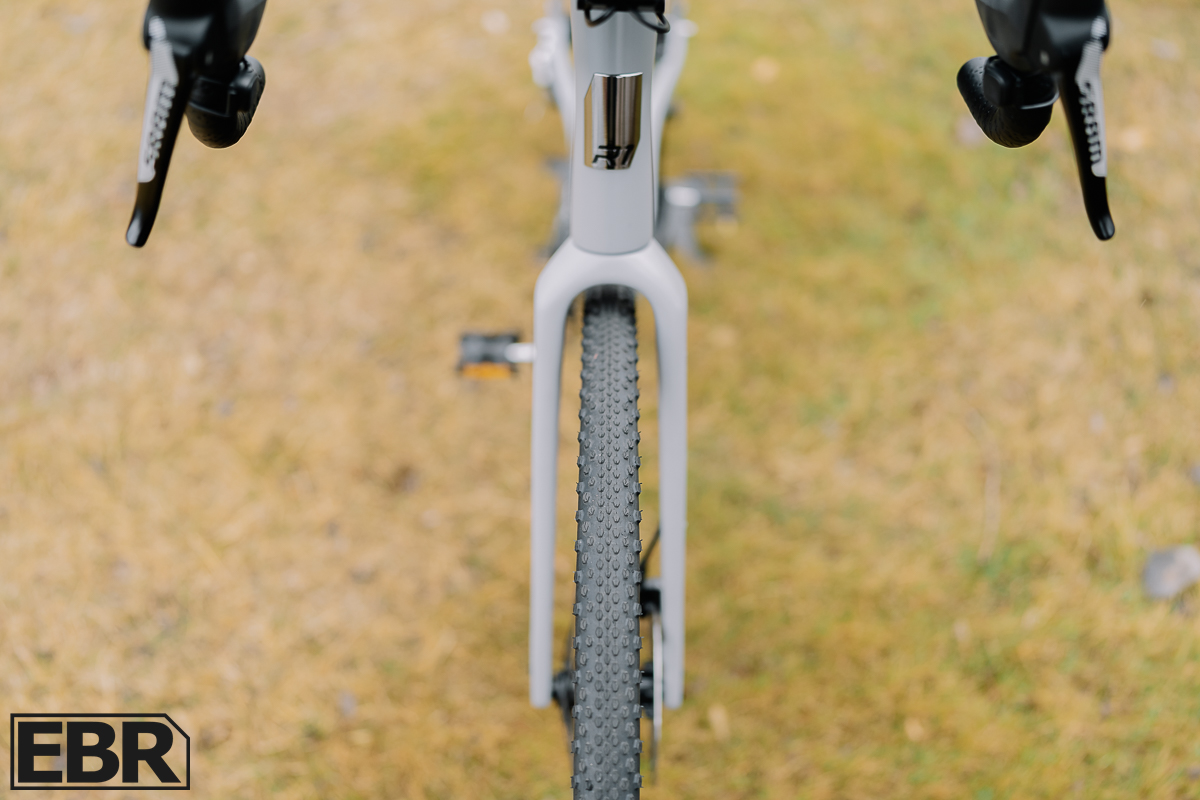
As a local cyclist here in Utah, I’ve naturally gravitated away from road rides and over towards gravel bikes. They’re the perfect solution for exploring our endless backcountry fire roads while still being nimble enough for the occasional road ride. The CF Racer1 from Ride1Up fits right into this niche, and after putting over 300 miles on it, it’s only fair to share my thoughts.
Every time I lift this bike—whether into my truck or upstairs to my office—I can’t help but smirk at how light it feels for an e-bike: just 28.6 lbs. If you didn’t know better, you wouldn’t suspect it was electric.
The full carbon frame and fork are rigid, typical for road and gravel bikes. Overall, the bike feels great on pavement and well-maintained gravel, but on chunkier terrain, you’ll no doubt feel some vibrations through the handlebars that, on longer rides, start to fatigue my hands and upper body. But this isn’t a fault of the design; it’s typical of nearly all rigid gravel bikes. Fortunately, the natural flex of carbon does mitigate this somewhat compared to an alloy frame.
The geometry isn’t super aggressive, offering a more forgiving riding position with higher hood placements. You can comfortably ride upright, but the drops are there when you want to get aero on fast descents.
I’ve been rotating the CF Racer1 with my other bikes, and it’s become a go-to for recovery days. It’s perfect for those rides where I want to stay in Zone 2, supplementing with the electric assist to maintain a steady effort over a few hours in the saddle without overtraining.
Despite the 40c gravel tires, this bike rolls surprisingly fast. What I really appreciate is how it doesn’t feel like an e-bike when I’m riding it – a rare quality in this category. The clean lines, internally routed cables, discrete battery, and very quiet (and small) hub motor make it look like any other analog gravel bike at first glance.
I love how the bike feels like an analog road bike when I’m riding on pavement. The 38c tires strike a perfect balance—they’re not too wide or heavy, so they maintain the sleek, efficient feel of a road bike, yet they’re still beefy enough to head off-road in their true gravel spirit.
Thanks to its lightweight design, even without electric assistance, the bike is playful in its handling and gives an overall responsive ride. When I need an extra boost, the electric assist is always available, adding an extra layer of fun to the ride. This bike feels like a gravel bike, capable and comfortable on a variety of terrains, yet it also has the hidden superpowers of electricity, making every ride more fun.
Range
Estimated Range (from Ride1Up): 16 PAS1, 40 PAS 5 (up to for both)
Real World Range Test Results (from ElectricBikeReport): 15.3 mi on PAS 5 and 47.6 on PAS 1
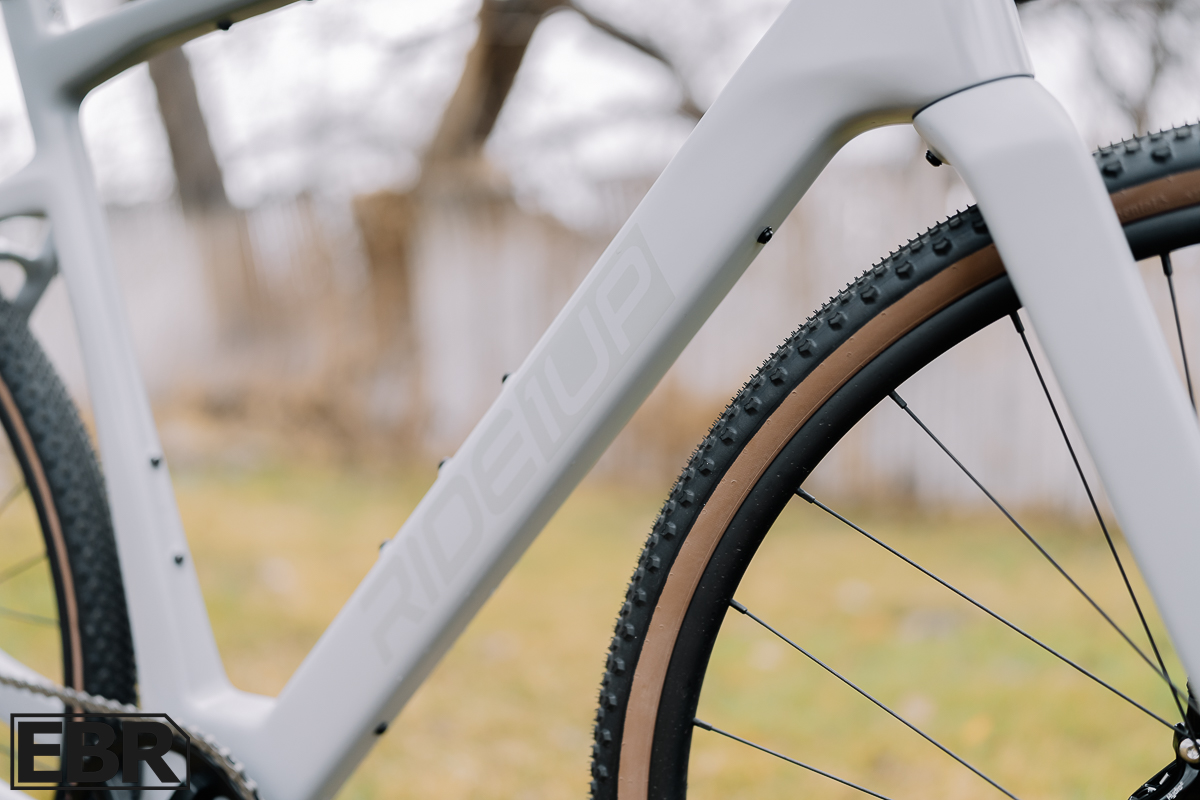
Range is always a hot topic for e-bikes, and the CF Racer1 doesn’t disappoint. Ride1Up estimates 16 miles in PAS 1 and up to 40 miles in PAS 5.
But how does it fare in the real world?
Our friends at Electric Bike Report put it to the test, clocking 15.3 miles on PAS 5 and an impressive 47.6 miles on PAS 1.
These numbers are very respectable considering the compact 252Wh battery. It’s a testament to the bike’s efficiency and lightweight design. For those craving even more range, Ride1Up offers a dual battery setup that effectively doubles your capacity. Keep in mind, though, that this will add a few pounds to the bike, pushing it over the 30lb mark. As always, there’s a trade-off between range and weight.
It’s worth noting that the actual range can vary significantly based on factors like rider size, terrain, and riding style. However, most riders should be more than satisfied with the 15 to 47 miles achievable on a single charge. And if that’s not enough? Well, the dual battery setup is always an option to double your fun.
Overall, the CF Racer1’s range is impressive for its size and intended use. It’s not trying to be a long-distance cruiser but rather a performance-oriented e-bike that gives you that extra boost when you need it most.
Power (Motor & Battery)
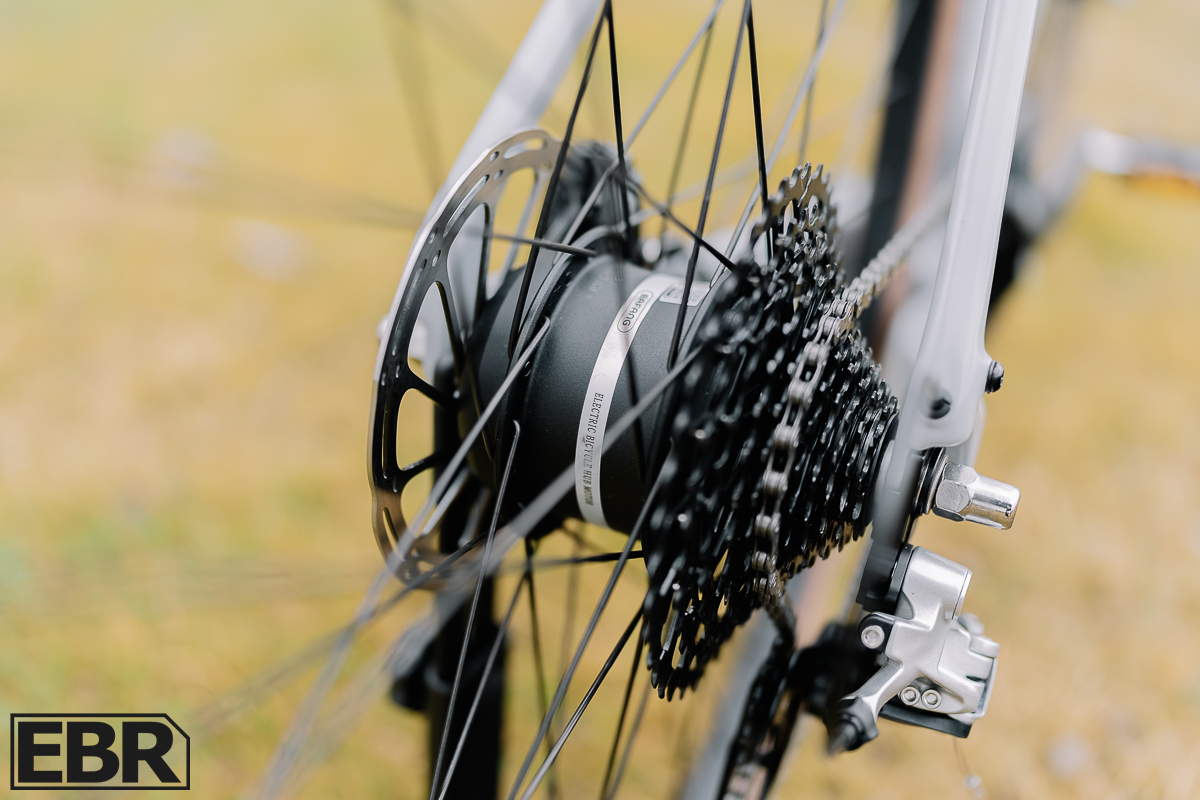
The CF Racer1’s 250W rear hub motor is quiet yet surprisingly capable. Its small size contributes to the bike’s stealthy, analog look, while the 42 Nm of torque showed impressive acceleration and hill-climbing ability for such a lightweight bike.
Riding around town and off into the endless public land gravel roads around here, I came to really like the CF Racer1. When it comes to tackling hills, the CF Racer1 has a good balance of weight and its 11-speed drivetrain to make the climbs possible. However, if I’m not using any pedal assist, I’d like a wider gear range or even a 2x setup to make ascents faster. But, of course, the electric assist more than makes up for this when I’m struggling.
The 36V 7ah Samsung cell battery, totaling 252 Wh, is compact enough to fit inside the frame, maintaining the bike’s sleek profile. This isn’t your typical e-bike—it’s designed to help improve your cycling, not replace it. There’s no throttle here, and that’s intentional.
The motor and battery size are good reminders that the CF Racer1 is an e-bike for cyclists who might not typically consider an e-bike. Its motor and battery combo feel perfectly balanced for its intended purpose—making you a better, more capable rider.
Components
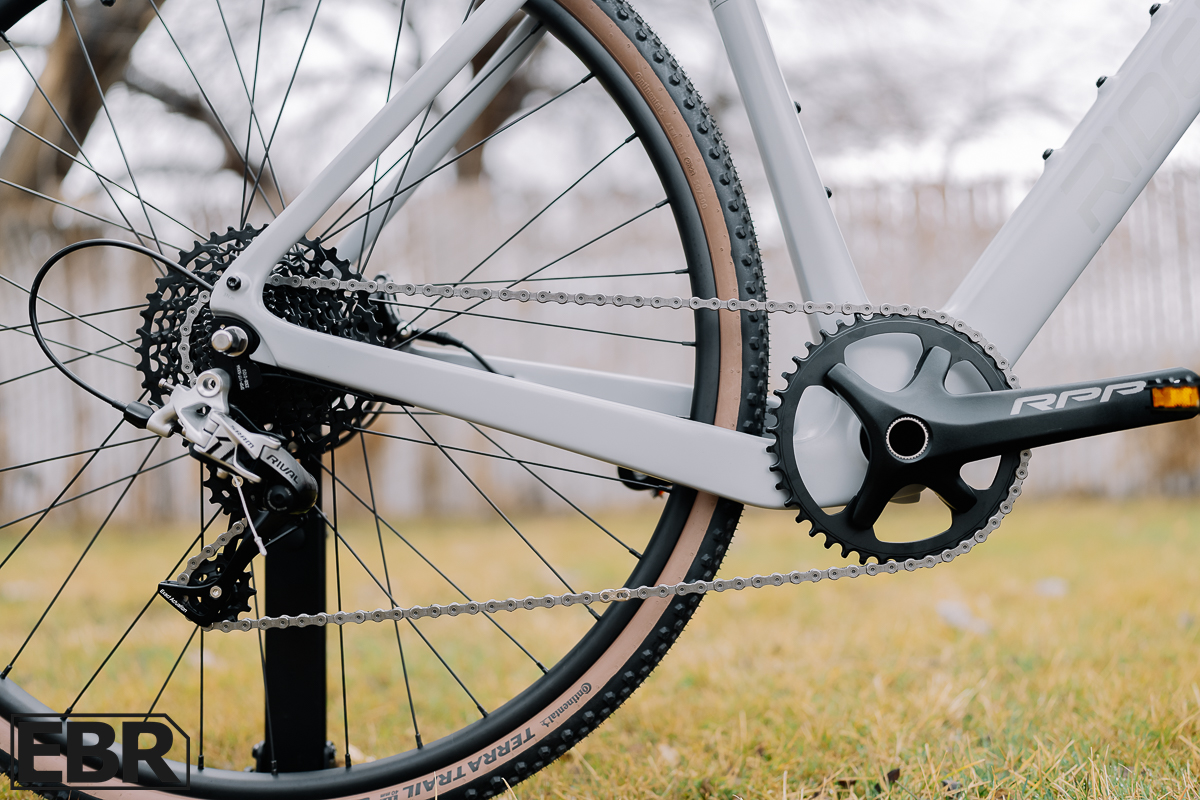
The component setup is impressive on the CF Racer1, especially considering its price point.
Starting off, the SRAM Rival 1 1×11 groupset, with its 42T chainring and 11-46t cassette, offers a solid range for most rides. While I occasionally wished for a bit more on demanding climbs, the pedal assist compensates nicely. The double-tap shifter took a moment to get used to, but once I did, it felt intuitive, and I didn’t skip a beat. I think choosing the 1X drivetrain is the right way to go, primarily for its simplicity, reliability, and, of course, that beloved weight savings.
As far as tires, the Continental Terra Trail 700x40c tires are tubeless-compatible and behave well on both pavement and gravel. The Selle Royal Asphalt series saddle is comfortable, even on longer rides.
The SRAM Rival 1 Hydraulic Disc Brakes with 160mm rotors provide reliable stopping power appropriate for the bike’s weight and payload capacity.
The sleek, aero 1-piece stem/handlebar combo looks great and feels nice on rides. The 15-degree flare really helps with control and lets me find new angles for my hands when they get tired. However, should you want to get a custom fit or add suspension, you may be spending a bit more than normal.
Swapping bars would mean either going back to a separate stem/handlebar combo or opting for a different 1-piece design. This could increase labor costs due to potential brake line length adjustments. However, adding a suspension fork is straightforward, thanks to the standard tapered steerer tube which is easily accessible by removing the three screws on the stem area of the handlebar.
The unbranded wheels come with tubes and Schrader valves. Going tubeless would require a new rear wheel with the same Effective Rim Diameter (ERD). Some riders have posted online how they successfully fit their CF Racer1 with 700x50c tires, with potential room for larger ones. If you’re considering this, check with Ride1Up first, as I don’t know how far you should push that. This could be an opportunity to reduce weight with performance wheels, either carbon or alloy. I mean, you’re going all in at this point, right?
One key difference in the wheel setup: the CF Racer1 has a standard front thru-axle, but the rear wheel uses a stainless steel nut system to secure the hub motor to the frame. This means changing a rear flat requires a 15mm or 5/8 box wrench (I’ve been stuffing one in my jersey) and dealing with the motor cable. It’s typical for rear hub e-bikes, but it can be a hassle to change a flat tire on the side of the road.
Personally, I’d use slime-filled tubes to avoid this situation. While it’s not a perfect solution, it might save you from roadside repairs and at least get you home. Just remember, this setup is common for rear hub motors, so it’s not the fault of this bike; it is just what it is.
The stock pedals are small platform-style, about half the size of typical ones. They’ll get you rolling out of the box, but I quickly swapped mine for SPDs.
All in all, it’s easy to nitpick and dream up ways to turn this into an e-racer gravel bike, but that wasn’t its intended purpose. As is, it’s a great bike with a solid setup, especially considering the price for a full carbon frame, let alone electric. It simply rides well, looks good, and is equipped with great components.
Screen / User Interface / App
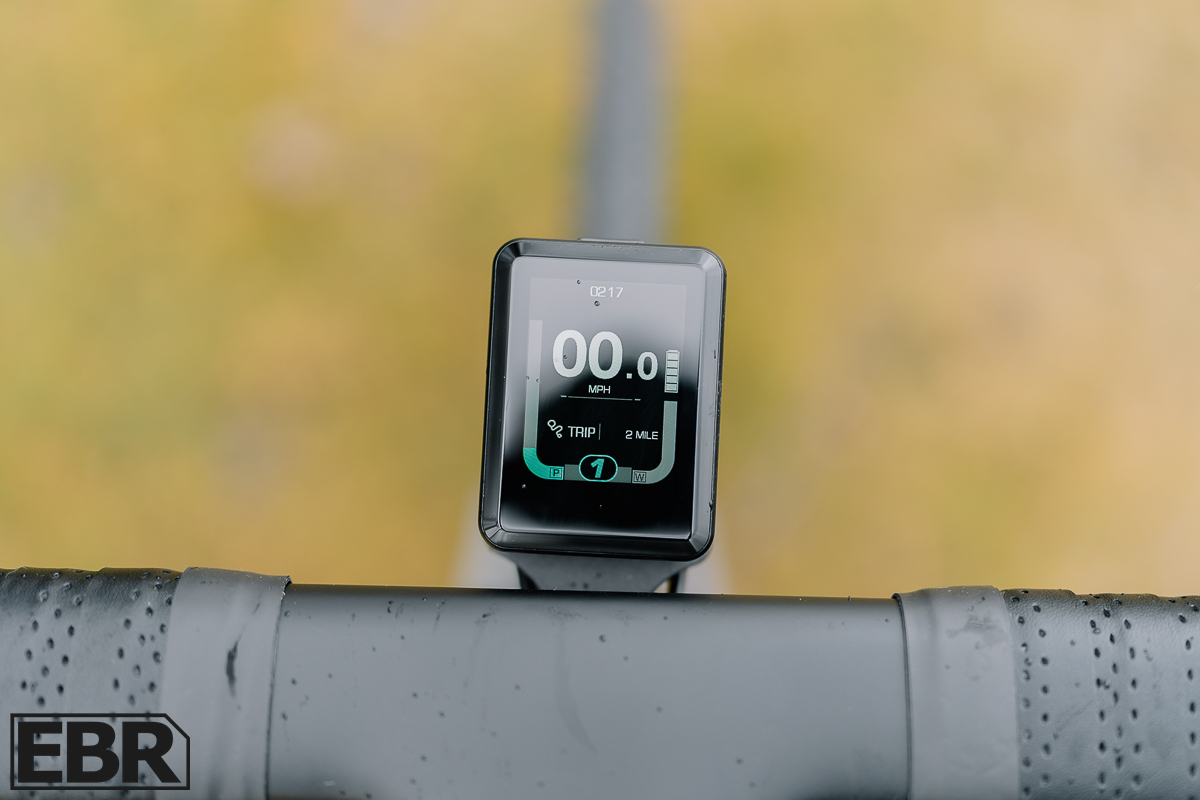
The CF Racer1 sports a compact color display mounted in a very sleek way at the center of the handlebars. Don’t let its size fool you – this little screen punches above its weight class when it comes to on-screen data.
On startup, you’ll see the basics: time, speed, PAS level, motor output in watts, trip odometer, and battery level. Tap the PAS +/- buttons simultaneously, and you’ll have another screen showing average speed, lifetime mileage, max speed, and a numerical battery level (labeled as ‘State of Charge’ or ‘SOC’).
Another tap of both buttons reveals the motor’s average and max wattage output. There’s also a hidden “Settings” menu – just hit the +/- buttons together within 10 seconds of powering on the display.
In this menu, you can tweak a bunch of things:
- Reset the display (handy for troubleshooting)
- Switch between KPH and MPH
- Set the time
- Set maintenance reminders
- Adjust backlight brightness
- Set auto-sleep timer
- Check firmware version
- Choose between voltage or percentage for battery display
- Set a security password
- Toggle the battery percentage on the main screen
- Clear trip data
- Adjust current limit (which differs between Road and Gravel versions)
The display looks right at home on this sleek road/gravel bike. It’s got all the data you would want minus the turn-by-turn nav you might be using on your current bike computer. Fortunately, an elastic band mount for your Garmin Edge retention system will secure your computer nicely centered on the ‘stem’ portion of the handlebar, leaving the bike’s display clear to see and your nav leading the way.
Ride1Up CF Racer 1 Model Options
When you hit the Ride1Up website, you’ll see two flavors of the CF Racer1: gravel and road.
The gravel version comes decked out with 700x40c Continental TerraTrail tires on double-walled aluminum wheels. These wheels have a 16.5mm depth and 17.5mm internal width, giving you a slightly taller standover and seat height. The rear cassette is an 11-42t, a respectable range for gravel rides. The handlebars sport a nice 15-degree flare, which looks great to me and improves control on loose surfaces, leaving more room for bar bags and extra hand positions for those long hauls. This gravel version weighs 28.6 pounds and can handle a total payload of 225 lbs.
Now, the road version. It’s kitted with Schwalbe E-One 700x32c tires, with alloy wheels and a 40mm depth and 17mm internal width. This setup drops the standover height by about 1⁄2 an inch (or 11mm for my metric friends). The rear cassette is a bit tighter at 11-36t. As you’d expect from a road bike, the handlebars are narrower, with just a 3-degree flare—the same 225 lb payload capacity as its gravel sibling.
Everything else? Carbon copy between the two.
Both versions come in two frame sizes: 50cm for the 5’3″ to 5’8″ crowd and 56cm for those 5’8″ to 6’3″. I’m 5′ 11″, and we were sent the 56cm for testing, and I felt it fit me really well overall. Color-wise, you’ve got two options: ‘rainbow black’ (think gloss black with a surprise party of rainbow glitter in the sun) and ‘clouded grey’ (a sleek matte grey finish). Our test model was the clouded grey, and it’s a looker.
Now, I have yet to take the road version for a spin, but if it’s anything like the gravel model, you’re looking at another heck of a deal. Fortunately, the price doesn’t change based on your configuration, road, or gravel; it’s the same $2,299.
Accessory-wise, the CF Racer’s frame is peppered with bosses for mounting bottle cages, gear, and even a dual battery setup. The rear end has mounting points for Ride1Up’s Connect+ Rear Rack system and some pannier bags, all of which you can add at checkout if you’re looking for storage options.
Speaking of that dual battery setup, as I’m writing this, it seems to be out of stock. The folks at Ride1Up say a new version is on its way soon.
Ride1Up CF Racer1 vs The Competition: How It Stacks Up
Part of any big purchase is researching how the bike on your radar stacks up against its peers in the e-gravel market. So, let’s take a look at 3 other popular electric gravel bikes also coming in under the $3,000 mark and see how they compare.
Ride1Up CF Racer1 vs Kona Rove HD ($1599)
The first one is the Kona Rove HD, the lowest-priced electric gravel bike I could find. While the price is attractive (at $1,599), the tradeoffs become clear after checking the specs. The groupset is Shimano Claris, the tires are 650b, the brakes are mechanical, and the frame is alloy. Not to mention, the weight of the Kona Rove HD comes in at 43 lbs, 12 oz, a whopping 15 pounds heavier. While you might not feel this bike at checkout, you certainly will the moment you start pedaling.
Ride1Up CF Racer1 vs GT eGrade Bolt ($2,800)
Things started looking a bit more comparable when we compared the CF Racer1 to the GT eGrade Bolt electric gravel bike. The motor of the eGrade Bolt is a comparable 250W rear hub drive with 40 Nm of torque and no range estimate given by GT. While it is an alloy frame, it comes in significantly lighter than the last bike at 32 lbs 4 oz, but still about 4 pounds heavier than the CF Racer1. The groupset is a Shimano GRX 400 with a 2×10 drivetrain, and it also has hydraulic disc brakes stopping the 700c tires. All in all, this is a comparable bike component and power-wise, but it lacks the carbon frameset and is priced about $500 more.
Ride1Up CF Racer1 vs Salsa Confluence Apex 1 ($2,999)
Then there’s the Salsa Confluence Apex 1 at $2,999. It sports an alloy frame, SRAM Apex 1×11 groupset, and a similar 250 Wh battery with a 40-mile range. But it weighs in at 33 lbs, nearly 5 lbs more than the CF Racer1, and tops out at 20 mph pedal assist compared to the CF Racer1’s 28 mph. With the Salsa coming in $700 more, the CF Racer1’s lighter weight and better speed still stand out as the stronger option in my opinion.
When I dug even deeper to find another fully carbon electric gravel bike, the prices nearly doubled to a minimum of $5000 (and only went up from there).
Does it seem like I’m really playing into the value of this bike? Well, that’s because I am. The value of the Ride1Up CF Racer1 is hard to come by these days, and taking a look at the competition only drives this home further.
Is The Ride1Up CF Racer 1 Worth Buying?
CHECK BEST PRICE
So, when it’s all said and done, who is the CF Racer1 for?
The CF Racer1 isn’t just another e-bike thrown into the mix. It’s part of a rare breed of performance-oriented e-bikes that aim to elevate your rides, your training, and your overall cycling game. It’s perfect when you want to log serious miles without completely blowing yourself up.
It shines on those long Zone 2 days or recovery spins where you want the time in the saddle, the leg turnover, and all the benefits of a longer ride, but with a little juice on tap when you need it.
You’re still doing the work, don’t get me wrong, but now you can dial in your effort precisely, keeping yourself in that sweet spot for hours. For the performance-minded rider, it’s a bit of a game-changer. You get all the feel and capability of a typical gravel bike with the bonus of extending your range and fine-tuning your training stress levels. It’s not about making it easy; it’s about making your training smarter.
Pros
- Serious value at $2,295 for a full carbon fiber e-bike with quality components.
- At just 28.6 lbs., it’s one of the lightest e-bikes we’ve tested.
- Available in both gravel and road-specific configurations.
- Stealthy, clean design aesthetic with a hidden internal battery and a compact hub motor.
Ride1Up CF Racer 1 Review, 2024 – Value
- Impressive 47-mile range on a single charge.
- Versatile 40c Continental TerraTrail gravel tires with frame clearance for up to 50c.
- The smooth pedal assist has a nice linear speed distribution up to 28 mph from the 250W Bafang rear-hub motor with 42 Nm of torque.
- Quality name-brand components throughout (SRAM, Bafang, Samsung, Selle Royal).
- User-friendly color display with clean mounting.
Cons
- One-piece handlebar and headset design limits upgrade options and potentially complicates fit adjustments, drop swaps, or suspension additions.
- Non-tubeless-ready wheels require replacement for a proper tubeless setup.
- I was forced to carry a ⅝ box wrench in my jersey for any potential rear tire flats on my rides, as the rear wheel is secured by a bolt, not a QR or thru-axle.
- The 225 lb payload capacity will limit the pool of potential buyers.
So, is the Ride1Up CF Racer1 worth buying?
CHECK BEST PRICE
Well, it’s a pretty serious value for what you’re getting when you compare this across the carbon gravel landscape (let alone e-gravel bikes), but it’s not without its quirks. Sure, you’ll need new wheels if you really want to go tubeless. If you’re itching to add suspension or make big changes to the stem or handlebar setup, you might hit some snags.
And let’s be real: if you’re more of a casual cruiser, you might be better off with a commuter or fat tire e-bike.
But for those of us who geek out over the nuances of a performance road or gravel bike and want that extra electric oomph, the CF Racer1 is hard to beat. Its lightweight carbon frame, impressive range, and quality components make it a strong contender for a gravel bike, let alone an e-gravel bike.
Bottom line? This is a bike I’m always looking to take home and ride outside of work. It’s one of those bikes I’m probably going to have to bite the bullet on and add to my ever-growing garage wall at my house. Now, I just need to come up with a convincing story for my wife when she spots another bike in the garage. I’ll figure something out—I always do 🙂.
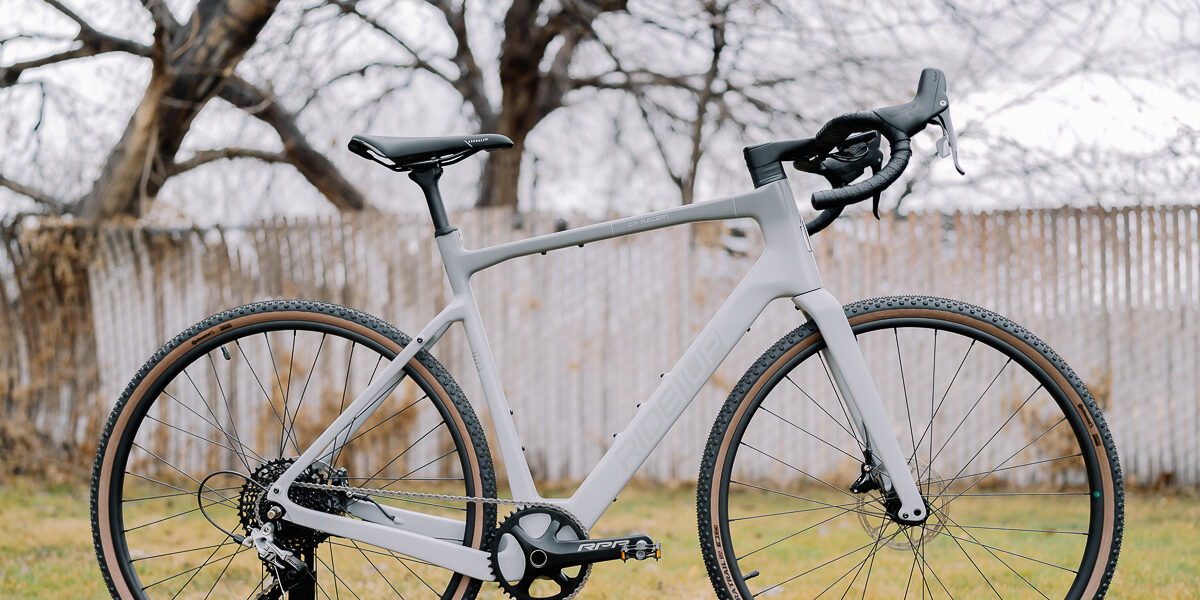




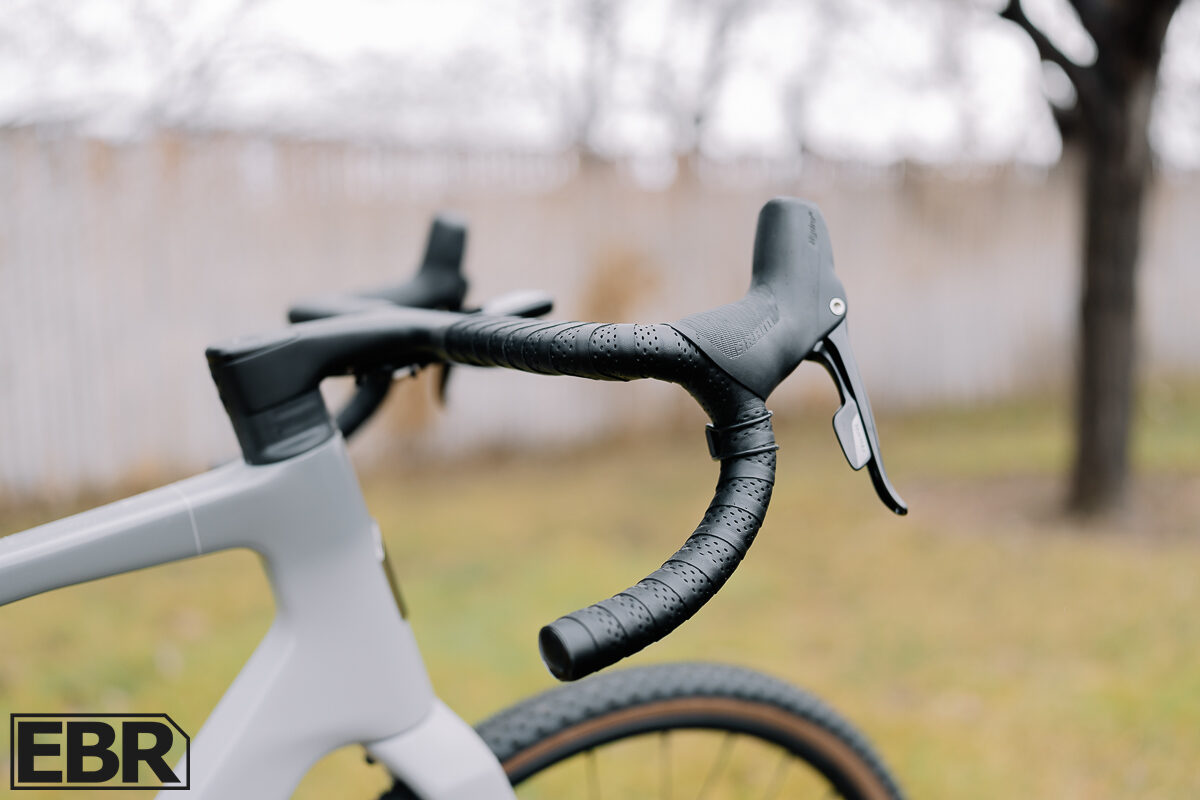

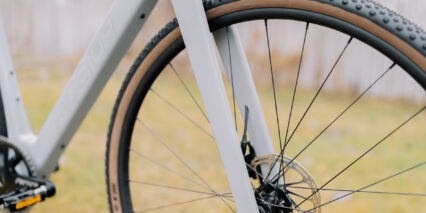
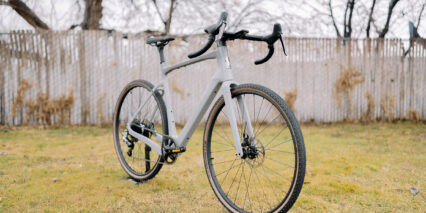
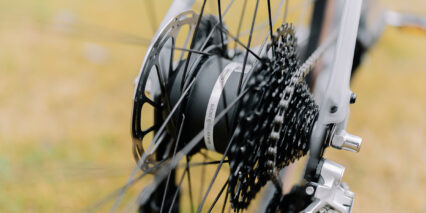








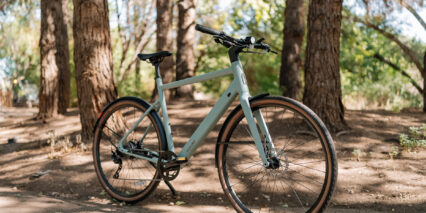

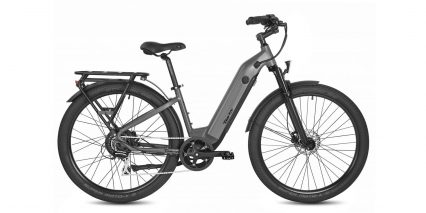
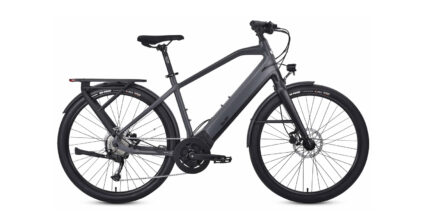
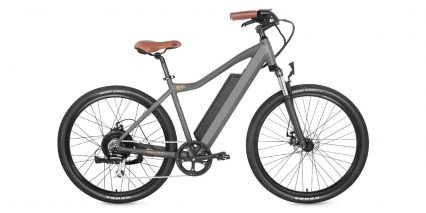
Be the First to Post a Comment